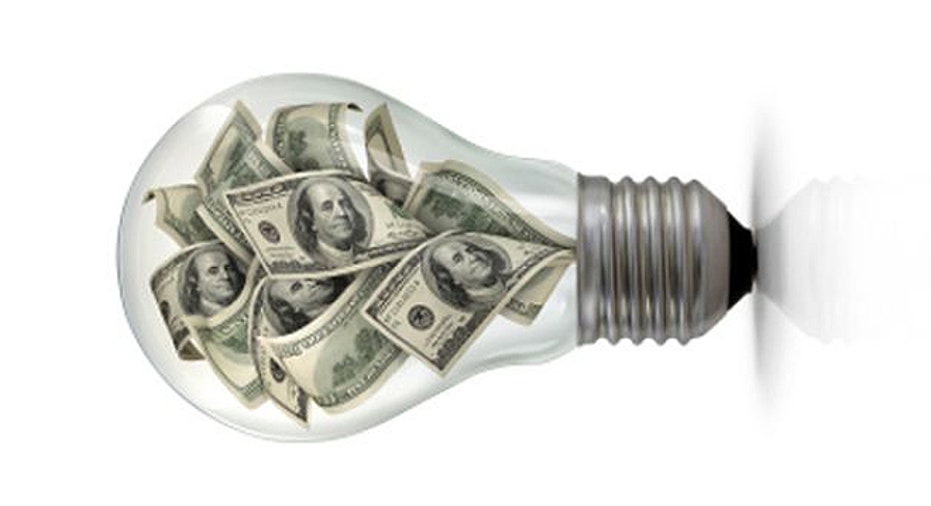Venture Capital’s Triumphant Return to a Buyer’s Market

A dark shadow has descended on the magical land of unicorns. The sudden pullback in global venture capital funding that began late last year has continued into 2016 and the horned beasts (startups with $1 billion+ valuations) are running scared. The question is, is that a good thing or a bad thing?
ICYMI, after nearly 12 consecutive quarters of growth, worldwide venture funding dropped a whopping 29% in the fourth quarter of 2015 and the number of deals fell 13% from its peak. According to a new report from CB Insights and KPMG, that trend continued through the first quarter of this year.
In another sign that the private equity gravy train is over, down events – investment rounds and exits where valuations declined from the previous round – nearly tripled to 40 over the past two quarters, compared to just 15 in the previous two, according to the CB Insights down round tracker.
Some of the notable down rounds last quarter included Chinese smartphone maker Xiaomi, India-based ecommerce site Flipkart, on-demand restaurant delivery service DoorDash, wearable device pioneer Jawbone and location awareness app Foursquare.
The precipitous decline in venture funding is worldwide and across all levels, from seed through late stage, although Asia and $100M+ megarounds are leading the downward trend. Last quarter in particular saw significant declines in seed funding, so even early stage companies are having a harder time raising capital.
While that may sound entirely gloom and doomish, when you consider how over-the-top valuations have become, not to mention how fast startups have been burning through cash in recent years, it’s about time that the overinflated private equity bubble let out some air and VC firms woke up and smelled the froth.
Not only was all of this entirely predictable, it was indeed foreshadowed long in advance by some very smart people, including Benchmark’s Bill Gurley, Marc Andreessen of Andreessen Horowitz, Mark Cuban and Snapchat CEO Evan Spiegel, among others. The point being that we’ve seen this sort of thing before. The only thing that’s unpredictable is the timing.
In any case, there are some notable exceptions to the new trend and some interesting takeaways, not all of which are bad.
While North America, which commands about 60% of global venture funding, saw a huge drop in Q4 of 2015, last quarter remained relatively flat, buoyed by California and significant growth in New York. And while investments in Asian startups suffered the most precipitous drop in both quarters, Europe’s decline was nominal.
Meanwhile, corporate investors that had previously been locked out of highly coveted and competitive rounds took advantage of the retrenching among VC firms and increased their activity. Google Ventures became the fifth most active investor in North America with Intel Capital and Comcast Ventures tied for the number twelve spot.
There were still some pretty enormous deals. China-based peer-to-peer lender Lufax raised $1.2 billion. Spotify closed a $1 billion round of debt financing in Sweden. Stealth augmented reality company Magic Leap raised nearly $800 million. Uber competitor Lyft garnered another $500 million, as did group discount platform China Internet Plus Holding.
Startups are going to have a much tougher time raising rounds and maintaining valuations. That means founders and CEOs are going to have to rein in spending and manage their burn rates more conservatively. They’ll also need to reprioritize from unbridled growth to sustained profitability. That will be the new normal going forward.
While VCs are becoming more discerning, they’re still raising plenty of dough. With interest rates so low and equities going sideways, cash-rich institutional investors like pension funds and universities have to put their money to work somewhere. According to the Wall Street Journal, VC companies hauled in $13 billion last quarter, the most since the dot-com era. Accel Partners raised a record $2 billion and Founders Fund added a new $1.3 billion fund.
With all that capital burning a hole in their wallets, some are predicting that the recent tightening of venture funds might be relatively short-lived. Don’t count on it.
There’s little doubt that a unicorn shakeout is well underway. With all the down rounds, down acquisitions, and a downright frigid IPO market, lots of investors are going to get burned. In other words, startups can expect VCs to maintain a saner approach to risk tolerance going forward, or until we get through the cycle and start all over again.
Whether the unicorns like it or not, the VCs are back in control … of themselves. Personally, I see that as a good thing. Hallelujah.



















